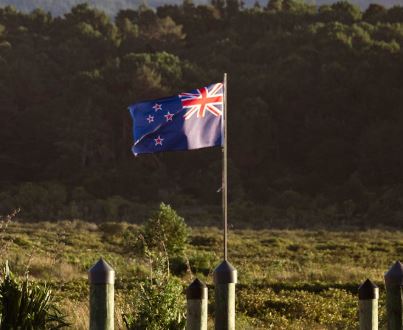Wellington [New Zealand], November 27: New Zealand has urged France to forge a new constitutional relationship with its troubled external territory New Caledonia, marred by civil unrest.
A bungled proposal to widen the voting franchise in the Pacific island country produced riots in May, resulting in more than a dozen deaths, widespread looting and arrests.
The reform derailed the long-standing Noumea Accord, a pledge from Paris to give the colonised territory more power to self-govern.
Since then, the French and New Caledonian governments, regional neighbours and the Pacific Islands Forum (PIF) have attempted to smooth waters between the agitated camps.
Australia has been active behind the scenes, while New Zealand engages in more public diplomacy.
On a visit to Paris this week, New Zealand Deputy Prime Minister Winston Peters suggested replacing the Noumea Accord with a new shared governance structure.
Recalling American poet Robert Frost's work The Road Not Taken, Mr Peters said "in 2024, that road has become overgrown and blocked by choices already made and actions already taken".
"We therefore think that in Noumea and Paris, the key to restore the spirit of earlier understandings is for all parties to have open minds about their next crucial choice, about a new path forward, because France and the people of New Caledonia stand at a new turning point."
That turning point could be granting fresh autonomy, akin to New Zealand's own relationship with its realm nations of Cook Islands, Niue and Tokelau.
"There are all sorts of constitutional models out there, including across the Pacific," he said.
"Our realm relationships are stable and mutually beneficial, so enduring, and the constitutional mechanisms provide for maximum self-determination while ensuring that New Zealand's security and defence interests remain protected."
The idea to rethink constitutional ties is similar to one made by PIF chair Hu'akavameiliku Siaosi Sovaleni, Tonga's Prime Minister, who suggested looking at "various models" last month.
Mr Peters, 79, and in his third stint as foreign minister through a near-50-year political career, has visited all but two of the Pacific Island Forum member states this year.
He was unable to visit New Caledonia due to the unrest, and Kiribati, which has closed borders to diplomats.
Mr Peters said the desire of Kanaks to gain more control over their homelands was understandable given recent history.
"Rising Pacific nationalism is something we have closely observed since the mid-to-late 1980s, so the direction it's taken, while sometimes confronting, is not surprising," he said.
"The challenge, then, as now, is to create a new pathway that meets the ambitions and aspirations of all New Caledonians of all backgrounds."
This week's speech was not Mr Peters' first foray into the sensitive matter.
In July, he was rebuked by France's ambassador to the Pacific, Veronique Roger-Lacan, for suggesting the third independence vote as part of the Noumea Accord wasn't legitimate.
France pushed ahead with that vote despite a boycott by Kanaks, who were grieving pandemic deaths, producing a 43 per cent turnout.
Mr Peters said it was "within the letter of the law . not within the spirit of it" while Ms Roger-Lacan said he did not make sense.
"It is legal. Full stop," she said.
While that speech may have taken Paris by surprise, this time around Mr Peters has engaged the new French government in advance, meeting France's Overseas Territories Minister Francois-Noel Buffet overnight.
Mr Peters' lecture, delivered to the French Institute of International Relations, did not address concerns of widespread abuses of power by France since the unrest began.
A UN report in August alleged thousands of Kanak protesters were arrested and detained, many arbitrarily, by French police who arrived to quell discontent.
Source: Fijian Broadcasting Cooperation

